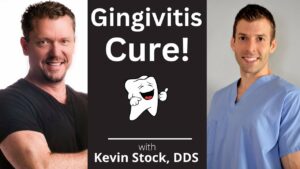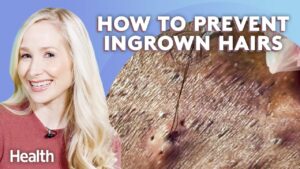In this video, the speaker discusses the importance of maintaining healthy arteries to prevent heart disease. They emphasize the significance of the endothelial layer, a thin layer of cells inside the arteries, and highlight factors that can lead to inflammation and the formation of clots, such as smoking, alcohol, stress, refined sugars, and seed oils. The speaker recommends certain foods that can help clean out arteries, including omega-3 fatty acids from salmon and sardines, extra virgin olive oil, dark leafy greens, vitamin K2-rich foods like parmesan cheese and sauerkraut, almonds, liver, and grass-fed beef. The video also questions the prevailing belief that red meat is detrimental to heart health and highlights a study debunking this claim.

Our Summaries are written by our own AI Infrastructure, to save you time on your Health Journey!
Key Insights:
- Heart disease is a major cause of death, so it is important to focus on what to eat to clean out your arteries and prevent cardiovascular problems.
- The inside of your artery is lined with a thin layer of cells called the endothelial layer, which can be influenced by toxins in your blood, such as from smoking or drinking.
- Chronic exposure to harmful substances, stress, refined sugars, refined carbohydrates, and seed oils can lead to inflammation in the artery walls, triggering a healing response that can form clots and lead to heart problems.
- Tests like the coronary artery calcification test and the heart rate variability test can help predict your risk of heart disease.
- High homocysteine levels indicate a B vitamin deficiency, which can increase the risk of heart attack and stroke.
- Consuming foods rich in vitamin K2, vitamin E, omega-3 fatty acids, and antioxidants can help keep your arteries healthy.
- Foods recommended for artery health include salmon, sardines, cod liver, olive oil, dark leafy green vegetables, vitamin K2-rich cheese, raw sauerkraut, almonds, liver, and high-quality grass-fed red meat.
- Scientific research challenges the notion that red meat is harmful to the heart, and calls for greater transparency and unbiased evidence in nutritional science.
Transcript
Heart disease is the leading cause of death, so today we will discuss what foods to eat to clean out your arteries and prevent heart problems. It’s important to mention what not to eat as well. The problem starts inside your arteries with the thin layer of cells called the endothelial layer. This layer is permeable and reacts to toxins in your blood, like those from smoking or alcohol. Chronic exposure to these toxins and stress can lead to inflammation and the formation of clots in your arteries, increasing the risk of heart problems.
To prevent this, you should focus on consuming foods that support your cardiovascular health. Omega-3 fatty acids found in salmon, sardines, and cod liver oil are beneficial. Extra virgin olive oil is excellent for maintaining healthy blood pressure and supporting endothelial cells. Dark leafy green vegetables are loaded with vitamins C and folate, as well as magnesium and potassium. Parmesan cheese, specifically the real Italian version called paragano, is rich in vitamin K2, which helps prevent calcium build-up in arteries. Nutritional yeast is another great addition to salads for its B vitamins.
Raw sauerkraut is a probiotic and prebiotic food, abundant in vitamin C and K2. Almonds are a good source of magnesium and vitamin E, though they also contain oxalates that can be reduced with calcium-rich foods like cheese. Liver, whether from beef or chicken, provides a wide range of nutrients, including B vitamins, folate, and vitamin K2. Finally, grass-fed, grass-finished beef is lean and nutrient-dense, contrary to popular belief. A recent study questioned the claim that red meat is harmful to heart health, highlighting the need for unbiased research.
It’s important to question the sources of information and the potential conflicts of interest when it comes to health recommendations. Remember, a varied and balanced diet, along with a healthy lifestyle, is key to maintaining good heart health.





